An equitable tomorrow: PWD organization's urban farming program produces food and livelihood for its members
By Yvette Tan
By YVETTE TAN
In the Philippines and much of the world, persons with disabilities (PWDs) are unfortunately considered inferior human beings and a burden on society. Disabled people, of which this author is one, know that this kind of ableist mentality is dangerous as it strips PWDs of rights and freedoms readily available to their able-bodied counterparts, and also deprives society as a whole of members who can actively contribute to its growth. This is something Richard Arceno knows all too well.
Arceno is the former Sectoral Representative of Persons with Disabilities of the National Anti-poverty Commission (NAPC), former country director of UK-based NGO Muslim Aid International, and the founder of the Bigay Buhay Multipurpose Cooperative (BBMC), which is housed in the Livelihood Education and Rehabilitation Center (LERC) in Caloocan City, near the border of Bulacan.
He was born with congenital deformity. He wanted to be a teacher, but quit after three years to focus on community development. BBMC employs PWDs as workers, building desk chairs for public and private schools and engaging in bag and t-shirt production, among others. Their sources of income dried up during the pandemic, forcing them to pivot to urban agriculture.
From a place of fear to one of hope
LERC is housed in what was formerly a malaria center during World War II. Abandoned after the war, Arceno requested from then president Gloria Macapagal-Arroyo in 2003 that it be assigned to BBMC. She agreed. The building’s name was changed to the LERC.
Arceno lists three important elements in the empowerment of a PWD: education, livelihood, and rehabilitation. The Center offers all three. There is an inclusive early-childhood education and a technical vocational program for learners, as well as a rehabilitation program that includes doctor consultations and physical and occupational therapy, which are important for PWDs to thrive.
“The cost is high, especially education and health, but we are able to manage it through the support of community volunteers, partners, and the academe. So the LERC is for community empowerment, development, and transformation, that is our formula,” he said.
And then of course, there is livelihood. Before the pandemic, coop members ran a furniture business such as making desks for school rooms in partnership with the Department of Education. In 2015, he realized that the organization’s income was not enough to sustain its food requirements. His work as country director of Muslim Aid International, where he introduced agricultural programs to victims displaced by Typhoon Yolanda and the Marawi siege made him understand that, “if I can implement this tool to non-disabled young people in Mindanao and Tacloban, I can do it also [with] PWDs.”
Making connections
They started with poultry and egg production, raising both Rhode Island Reds and native chickens. When the pandemic happened, they needed to increase production, so they ventured into integrated farming, growing herbs, lettuce and mushrooms and later venturing into aquaculture and beekeeping. They made their own fertilizer and pesticide, ensuring that everything was naturally grown and nothing went to waste. “All these things saved our lives during the pandemic,” Arceno said.
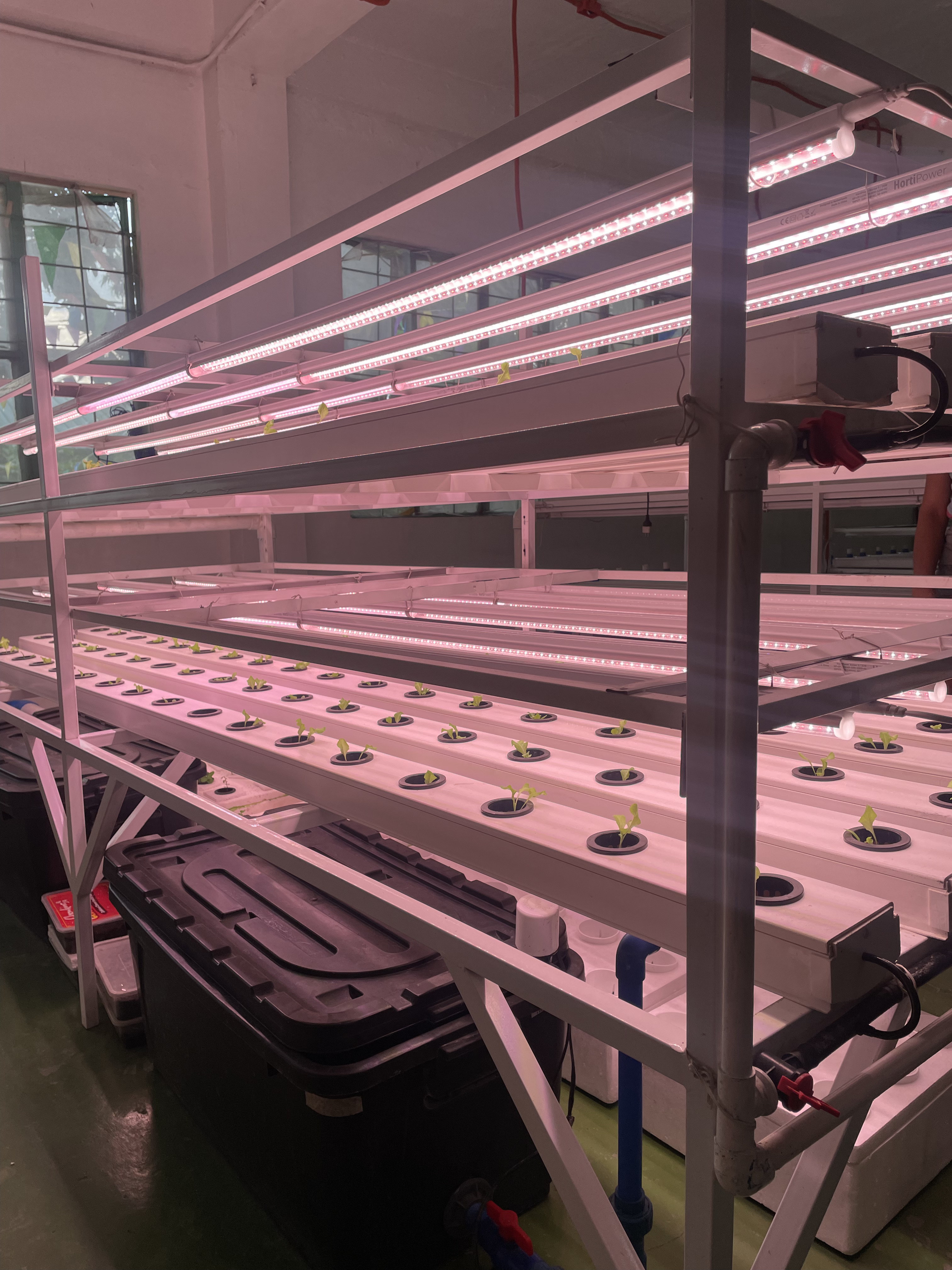
Arceno has a gift for making connections, and he used this to gain support for LERC. He tapped the Bureau of Plant Industry (BPI) and the Agriculture Training Institute. BPI Director Glenn Panganiban introduced him to the Latter Day Saints Charity, who introduced them to Harbest Agribusiness Corporation, all of whom continue to support the organization.
Disability inclusive agriculture
LERC promores disability inclusive agriculture or accessible farming, which allows PWDs to be part of the food production system. Modifications include raised beds and hydroponic setups so people who cannot bend or stand can farm produce at a comfortable height, guides for the blind, and directions in sign language. “It is a cross-disability effort, especially for wheelchair people,” Arceno said.
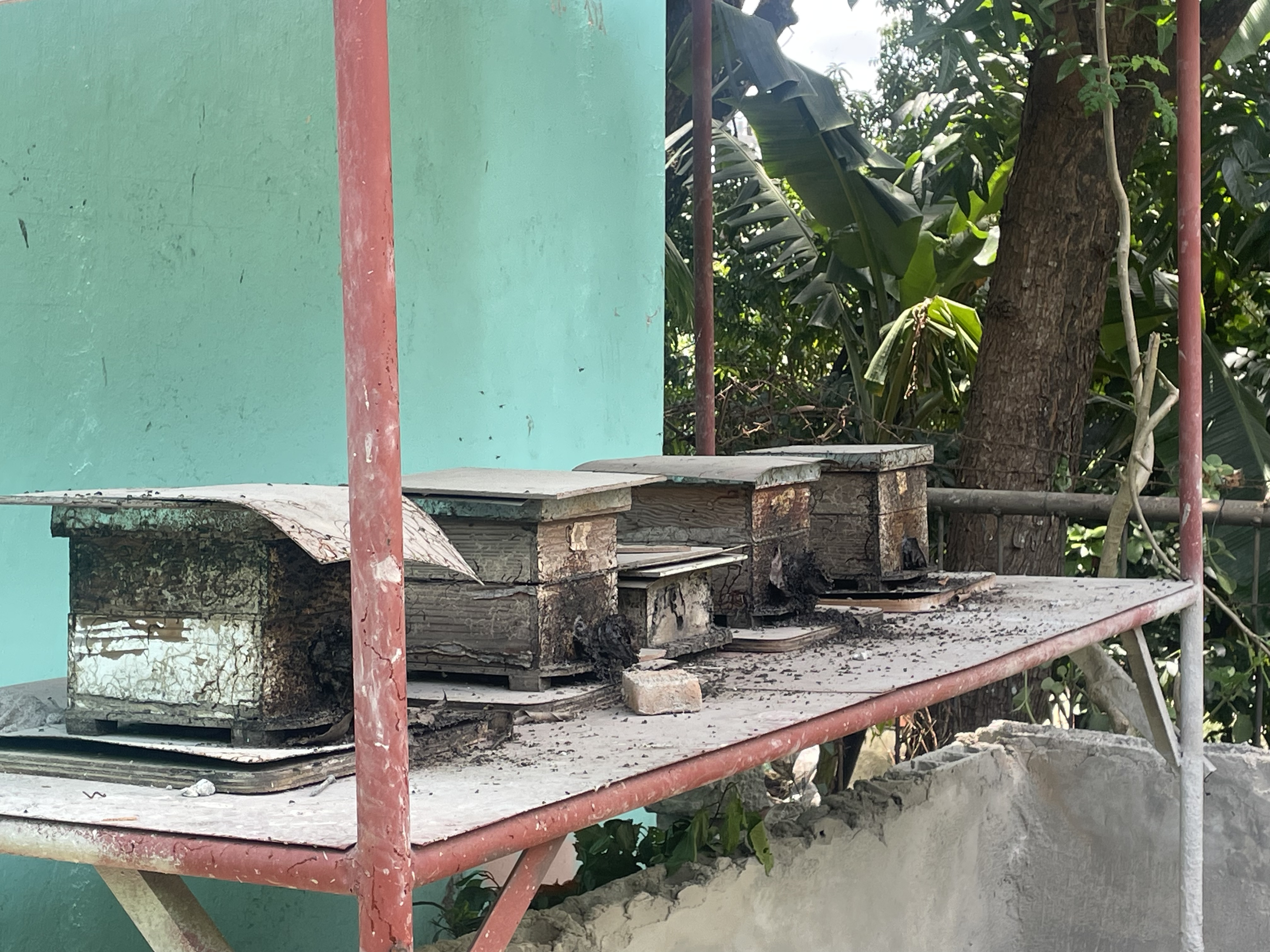
“We have the physically impaired or the orthopedically impaired like me in a wheelchair also in crutches. We also have the visually-impaired persons, we have the speech and hearing impaired persons, those with intellectual and developmental disabilities, and even psycho-social. All of them are involved together with their family because we realized if we help PWD without involving the family in the production system, I don’t think this will survive. We need a sustainable initiative.”
The harvests are sold to members of the community, as well as to the nearby Dr. Jose N. Rodriguez Memorial Hospital and Sanitarium, where LERC also runs an urban garden/ coffee shop that sells their produce and baked goods, whose ingredients also come from the farm when possible.
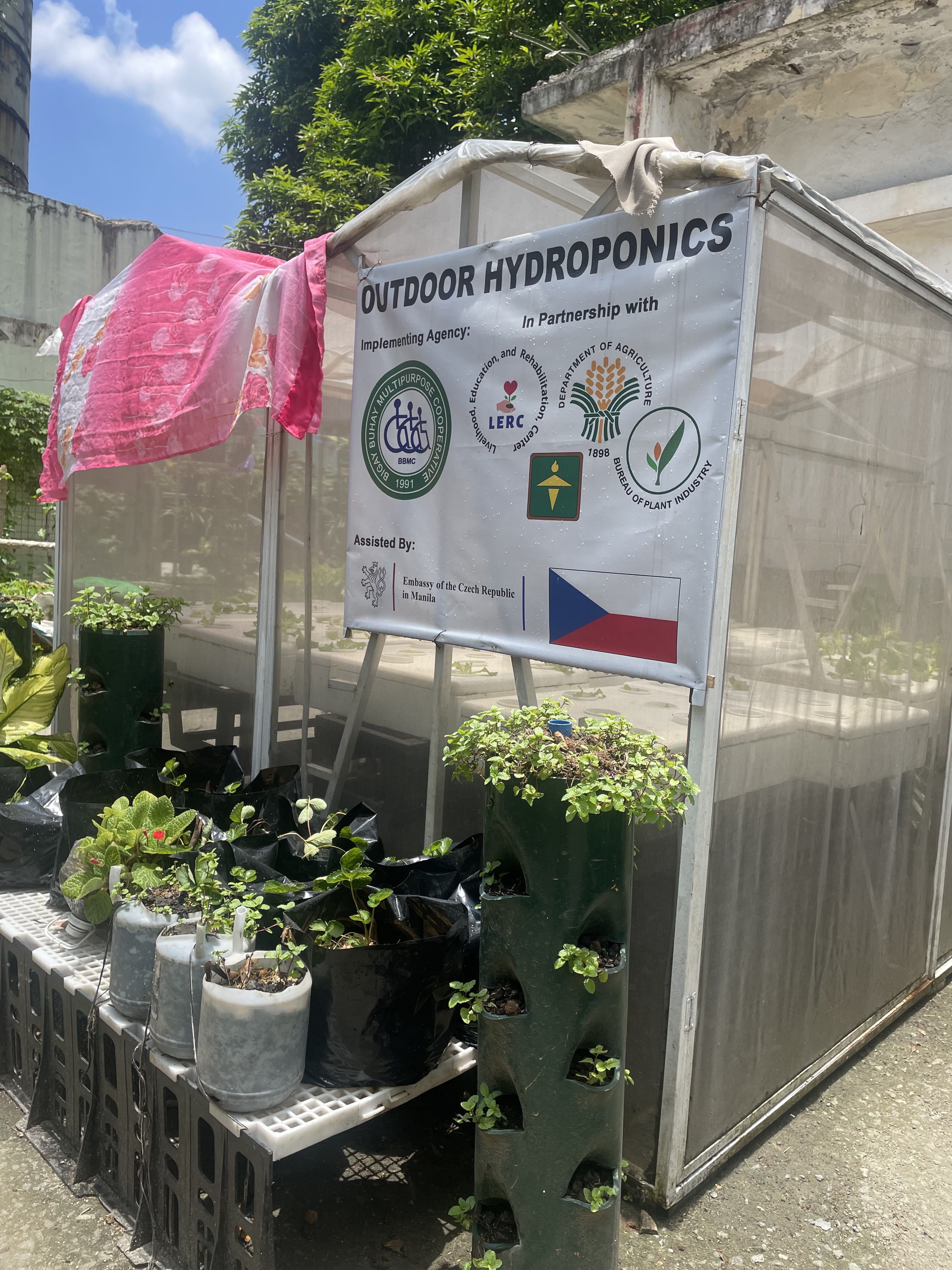
LERC has a total of 100 PWDs actively working in its various projects. Arceno enumerates: “urban farm, furniture, rugs, bags, and t-shirt printing, and all other promotional items including baking and cooking.” They also engage with about 20,000 PWDs in Caloocan; Quezon City; San Jose del Monte and Norzagaray Bulacan, and San Mateo, Rizal. “Imagine if the government will invest more in this sector, so more will [get the opportunity] to study, train, and to be involved in the community,” he mused. “Our challenge is to convince the government that we have and can do more. It is about time to have a multi-sectoral initiative so that [the country’s] 2.3 million PWDs should be converted into an asset rather than a burden to the state.”
He is currently working towards securing the organization’s future, especially since certain organizations have been eyeing the land LERC stands on. “To have a permanent place where PWDs can work, can live in the community,” he said. “The gift I would like to have is to have a permanent place where PWDs have an accessible house where they can farm and do other work, and they can live. They can send their children to school and they can have a decent living.”
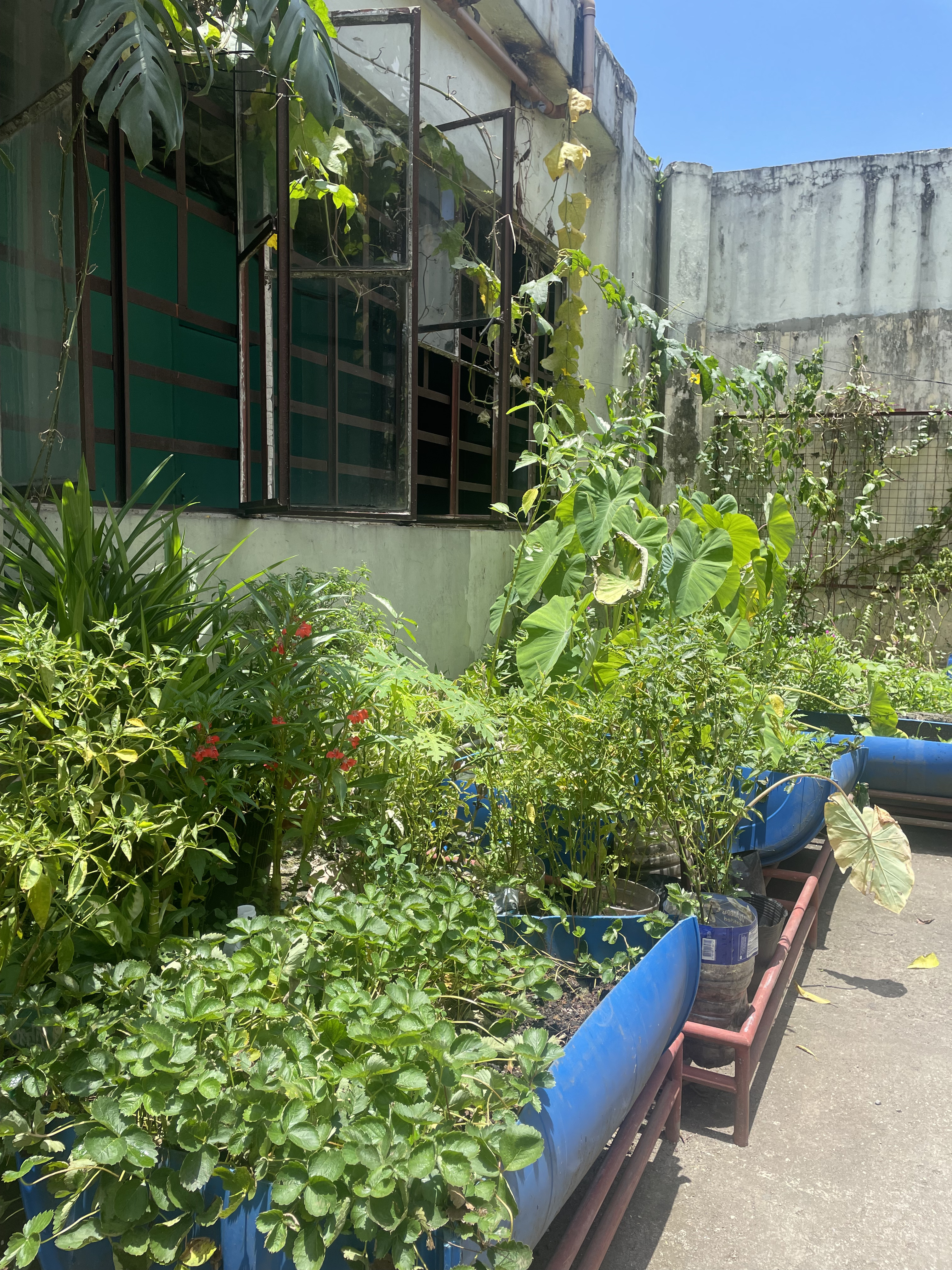
Equitability for all
Beyond LERC, Arceno continues to fight for all PWDs in the country. “Until now we cannot see the visible and substantial transformation and change. Only 5% of children with disabilities have access to primary education, and less than 2% have access to secondary and tertiary education. Less than 5% have access to livelihood sustainable employment. In short, 90% are suffering from poverty. The budget of the government is very limited, the facilities are not accessible, and the society is not yet inclusive,” he said.
Instead of focusing on the negatives, Arceno believes that focusing on how PWDs can contribute to society will hasten their integration. “Agriculture is a good start to open the mind of the public. Imagine [a] PWD harvesting his own eggs, fruits, and food. There are many things to discuss, but I hope to transform the lives of 2.3 million idle assets.”
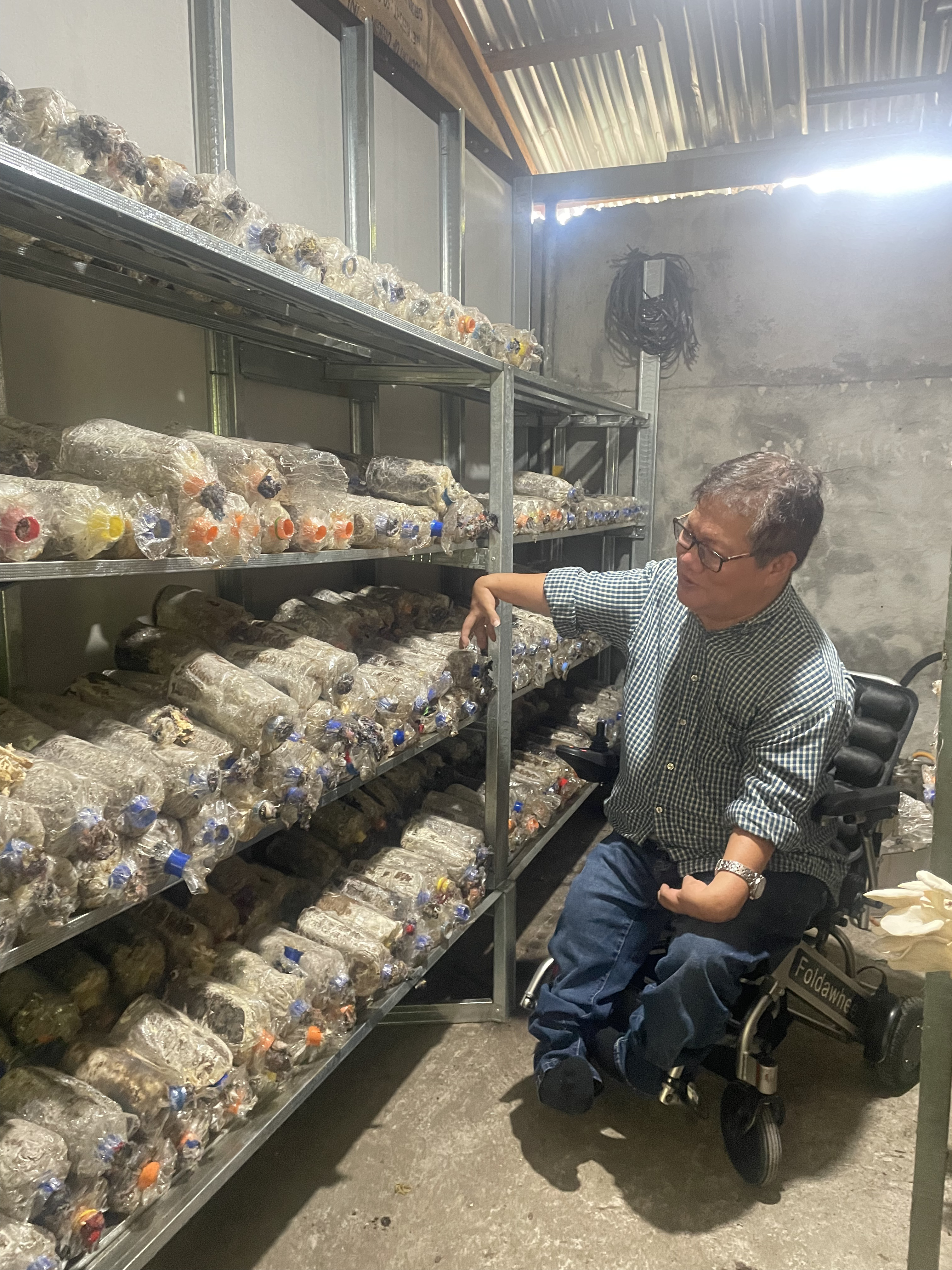
LERC doesn’t just cater to PWDs, but involves their families and the surrounding community as well. The organization has sponsored a Kasalan ng Bayan (mass wedding) and Binyagan ng Bayan (mass baptism), and part of the structure houses the unhoused. “Our framework is inclusive living, inclusive working, so we should not separate ourselves from the community. We need to reverse the situation… This time let PWDs help them,” Arceno said. “From begging before, now they have their own income and family. [Some have said], ‘Sir it is about time for us to go back to our respective areas. I can do it now.’ Building assets and equal opportunity is very important.”
Disability rights are human rights
Arceno is grateful for the support of the private sector, but stresses that regular customers are needed for LERC’s programs to be successful. “We are thankful that there are people donating seeds, trees, garden tools, and other things, and these are very essential. Even solar panels because we have no way to pay for electricity,” he said. “Market and access to capital is very critical for expansion and for sustaining this initiative.”
Potential customers such as schools, offices, restaurants, small businesses, and households can go to the LERC Facebook Page to inquire about products that include t-shirt printing, school furniture, various vegetables and farm products. “We need continuous products for furniture, t-shirts, and agriculture… Patronizing our products [means] you believe in the quality,” he said. “We can generate more jobs.”
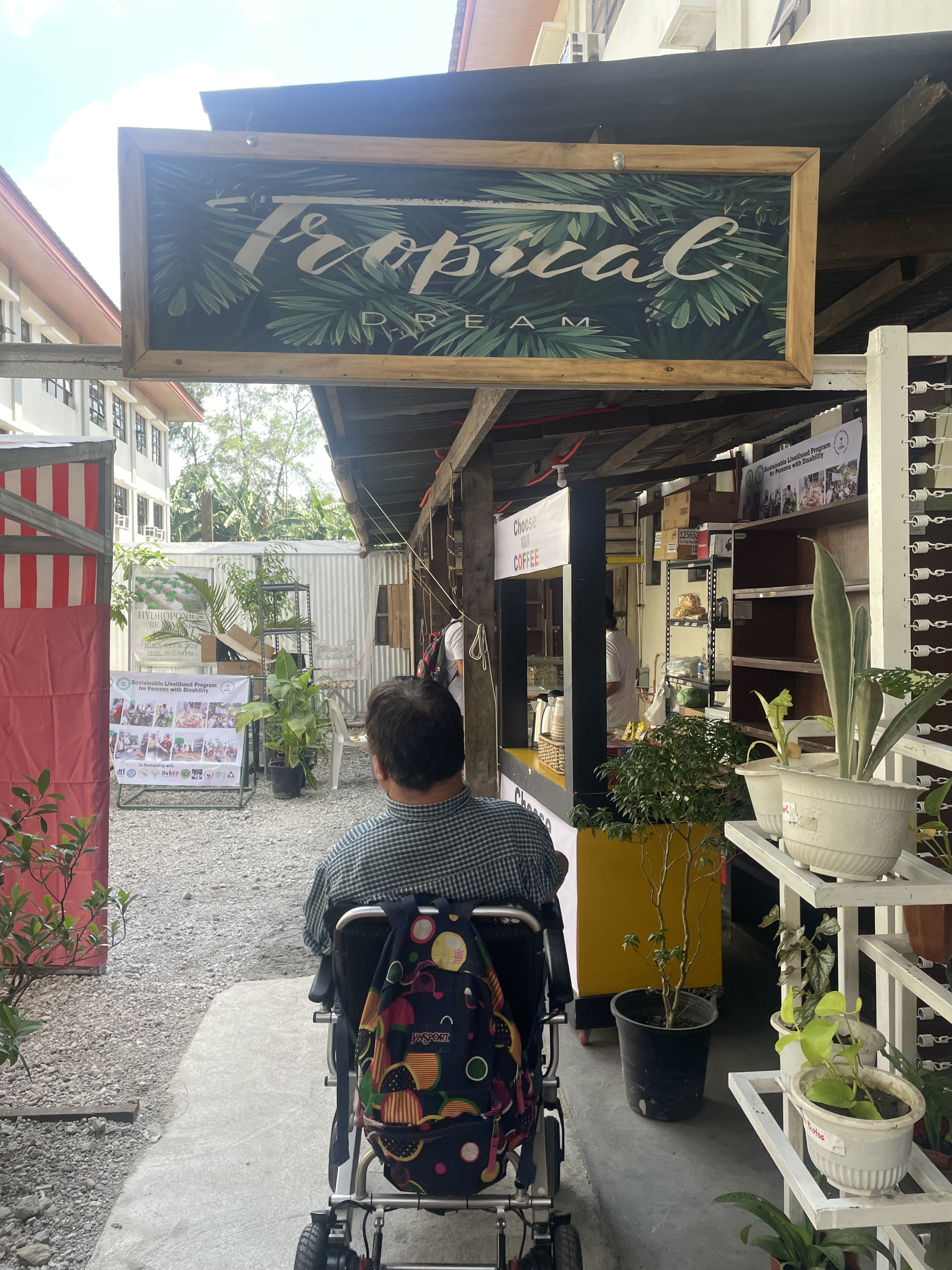
Aside from support, Arceno also appeals for more volunteers for LERC. He also urges the national and local governments to invest more in education and livelihood of PWDs. “For the Filipinos in general, we have to change all our mindset from charity; we need to have an enabled environment so PWDs can work and live in a normal life,” he said.
PWD-accessible infrastructure and public transportation is also important. “[We will all be] disabled at some point of our life because of sickness and unexpected accidents,” he explained. “So [develop] it now, because later [everyone] will be needing [it].”
He also urged the families of PWDs not to be overprotective of their disabled members, citing his own formerly overprotective family as an example. “They [did] not want me to go to school, they [did] not want me to go to work. They [were] surprised when I said that I will be marrying someone.”
The members of LERC, led by Richard Arceno, aim to continue “building lives and bringing values to the community.”
“If I cannot bring change at the country level, at least in my community, we can do it. Like Mother Theresa said, do small things with great love. And maybe that is my weapon, I love my work and I have no regrets in this work,” Arcejo said.
“Helping people is helping myself, if you help them, they help me. I realized that sometimes I forget I am a PWD. I earn, they earn, they are living normally in the community, and I live in a normal setting. I have my family because of my job. The big break is serving both disabled and non-disabled.”
Photos by Yvette Tan